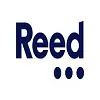Full Course
£160
£400Course Includes:
-
Online Study Mode
-
450 Hours
-
Study at your own Pace
-
Completion Certificate
Key Aspects of Course
-
Level 5 Diploma
-
Full Online Course
-
CPD Approved
-
Employer Approved
-
Fully Endorsed Course
-
450 Hours Training
-
No Entry Requirements
-
Boost Your Resume
-
Own Pace Study
-
Premium Course Material
-
Completion Certificate
£160
£400
Office Administration Course
Fast-track your progression and enhance your long-term outlook, with our most advanced Office Administration Course to date! Exclusive to Oxford Home Study Centre, this Level 5 Office Administration Certificate is open to ambitious candidates all over the world. Study the administrative and supervisory functions of leadership figures in an office environment, along with the importance of strategic resource allocation and how to write professional business documents. Master the art of performance management, HR management, risk management and change management, as you work your way towards an advanced Level 5 Office Management Diploma. Along with all required study aids and learning resources, our endorsed office administration courses come with free expert tutor support as standard. Enrol online today, or contact the student support team at Oxford Home Study Centre for more information.
Why Study Office Management?
One of the biggest advantages of a career in office management is the limitless scope for progression. Even from an entry-level supervisor role, the journey to top-level leadership can be surprisingly fast. Whether new to office admin or ready to take your current career a step further, this exclusive Level 5 Office Management Diploma could make all the different. Businesses worldwide rely on capable and confident office management to oversee their employees and activities. To succeed in office management, you need to be motivated, enthusiastic, approachable and the ultimate multi-tasker. In return, you can expect high earnings potential and plenty of career advancement opportunities. It’s simply a case of taking that first big step – why not take yours today?
- Managing administrative systems and processes
- Implementing effective performance management strategies
- Optimizing resource management
- Human resource management skills for office settings
- Mastering time management techniques
- Identifying and managing risks in the office environment
- Creating and maintaining professional documents
- Organizing and managing meetings efficiently
- Leading and managing teams
- Managing change within an organization
- Enhancing customer relations and satisfaction
this course
- Aspiring office managers
- Administrative professionals
- HR coordinators
- Team leaders
- Executive assistants
- Operations coordinators
- Office supervisors
SYLLABUS
Module 1
Module 1
Understanding Administrative Systems
Module 2
Module 2
Professional Documents
Module 3
Module 3
Performance Management
Module 4
Module 4
Meeting Management
Module 5
Module 5
Resource Management
Module 6
Module 6
Team Management
Module 7
Module 7
Human Resource Management
Module 8
Module 8
Change Management
Module 9
Module 9
Time Management
Module 10
Module 10
Customer Relations
Module 11
Module 11
Risk Management
Expected Admin, Secretarial & PA market growth by the end of 2027
Increased in growth in different learning organizations
Average Salary
£24k - £44k per Annum
Hiring Companies
Certifications
OHSC Certificate of Completion - Digital certificate
Digital certificate - Included.
Quality Licence Scheme Certificate of Completion - Hard copy certificate
Hard copy certificate - £85
Note: A nominal fee of £9.99 covers the delivery charge within the United Kingdom and a nominal fee of £19.99 covers the delivery charge outside the United Kingdom.
Frequently Asked Questions (FAQs)
Yes. All secretarial courses online offered by Oxford Home Study are delivered through a flexible digital platform, allowing you to learn from home or anywhere convenient.
No. Our courses have no deadlines, giving you full control over your study pace.
Yes. The price includes study materials, tutor support, and registration, with optional certificate upgrades available only if you choose them.
Absolutely. A dedicated tutor will be available to help you understand course topics and provide feedback on assignments.
Yes. Learners worldwide join Oxford Home Study programmes, as all materials and assessments are available entirely online.
Yes. Our secretarial courses start with core office skills, making them ideal for complete beginners or individuals returning to administrative work.
You only need a computer, laptop, tablet, or smartphone with Internet access. All study content is provided digitally.
Yes. Our structured modules and tutor support ensure that learners can understand office procedures, communication techniques, and organisational tasks effectively online.
Beginners may start with an entry-level programme, while those seeking advanced roles can choose higher-level secretarial courses online offered by Oxford Home Study.
Definitely. Completing one of our admin or secretarial courses can open doors to roles such as office assistant, PA, receptionist, administrative coordinator, and more.
Full Course
£160
£400Course Includes:
-
Online Study Mode
-
450 Hours
-
Study at your own Pace
-
Completion Certificate
Key Aspects of Course
-
 Full Online Course
Full Online Course -
 CPD Approved
CPD Approved -
 Employer Approved
Employer Approved -
 Fully Endorsed Course
Fully Endorsed Course -
 No Entry Requirements
No Entry Requirements -
 Boost Your Resume
Boost Your Resume -
 Own Pace Study
Own Pace Study -
 Premium Course Material
Premium Course Material -
 Completion Certificate
Completion Certificate
£160
£400




